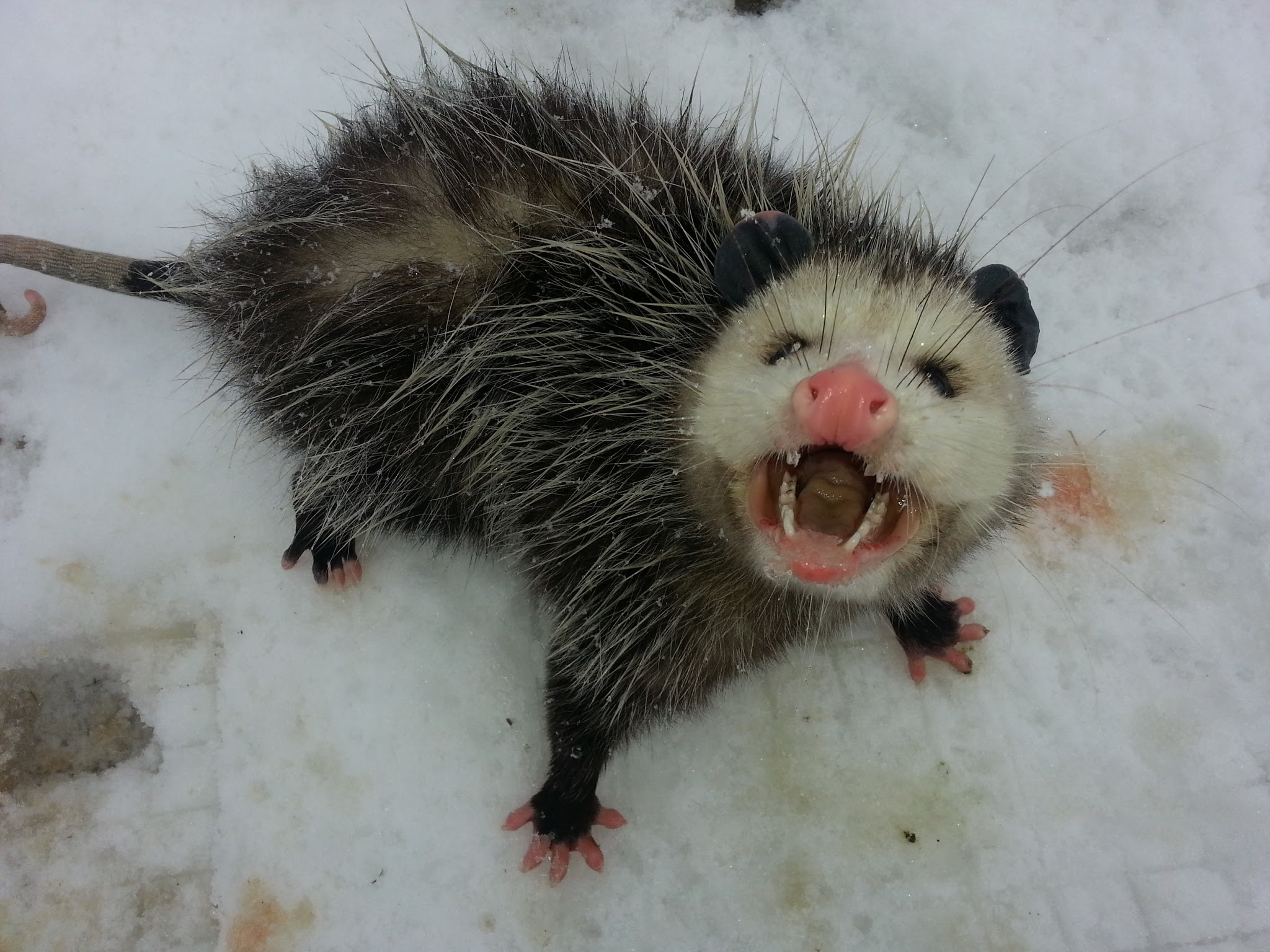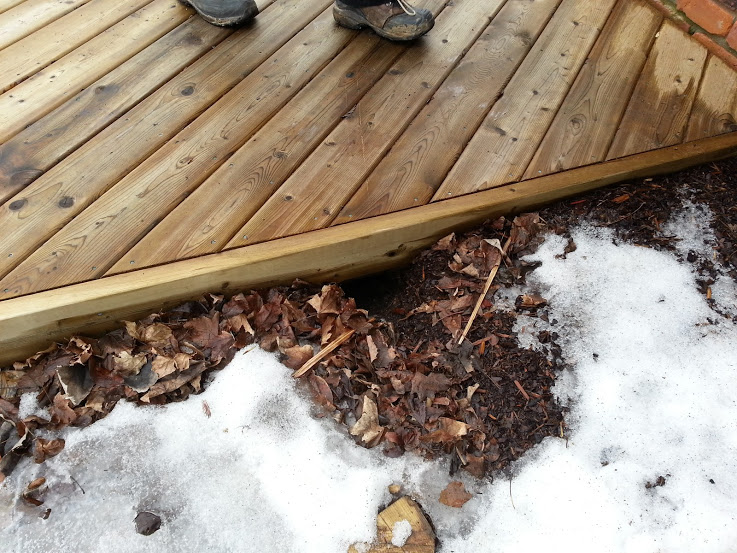Many species of urban wildlife that plague people’s homes and properties behave differently during winter than other times of year. Some species hibernate or migrate away for the winter, making this season of the year calmer for homeowners however, this is not the case with all of them. In fact, chances are you’re going to need wildlife removal services even in winter if you encounter any of the following animals:
- Opossums
- Skunks
- Raccoons
Why Do Opossums Require Professional Animal Removal Services?
Opossums are not native to Canada but have expanded their northern range into Canada from the southern United States over the past few decades. They have a relatively thin coat of fur and aren’t particularly suited for cold winters but have managed to survive by finding shelter and food near human settlements. Opossums don’t hibernate and commonly suffer from frostbite on their hairless tails and ears as a result of searching for food in cold temperatures. Attics and sheds make ideal winter den sites and helo opossums survive harsh winters.

Opossums often struggle to survive harsh winters
Opossums, like other animals, are particularly fond of areas under bird feeders. So, if you have bird feeders on your property, expect the local wildlife to consider such areas as all-you-can-eat buffets. In such cases, professional wildlife removal services are the most humane way to solve the problem.
What About Skunks?
Skunks build their dens at ground level under sheds, porches, decks and floating additions. They stay in their dens during harsh weather for up to weeks at a time but often do so in groups of a dozen or more thanks to their gentle nature. Their average lifespan is around four years, though as much as 50 percent of them can die during snowy winters that can make foraging for food very difficult. Professional animal removal is the safest way to remove them from your property, especially considering their familiar (and extremely stinky) defense mechanism.

Skunks are excellent at digging and make their homes in burrows below decks, porches, sheds and floating additions
Are Raccoons Also A Reason To Call In Professional Wildlife Removal Experts?
Indeed, they are! Thanks to being the largest animal of the three, raccoons are also the best suited to survive cold weather. Attics are a favourite winter den site for raccoons. During bad weather, they stay in their dens, sleeping lightly. However, during periods of warmer temperatures or mid-winter thaws, you’ll likely see them out and about on the lookout for anything that can serve as food. All three animals are omnivorous, meaning they’re not picky. Their diet includes smaller animals, nestling birds, bird eggs, insects, and earthworms. Raccoons typically live between two and three years, though there have been cases of some surviving up to 12 years. If spotted on your property, just remember professional animal removal is the safest and best way to go.
The reason why these three animals so often require home and property owners to call in professionals to deal with them is that they don’t truly hibernate. They also don’t migrate to a warmer climate, nor do they stockpile food for the winter. In other words, they’re out and about all winter long, wreaking just as much havoc as they do during other seasons. If you are affected by one or more of these animals, contact Skedaddle Humane Wildlife Control and have them removed expertly and humanely. With nearly thirty years in the business, Skedaddle is ideal for such situations.


